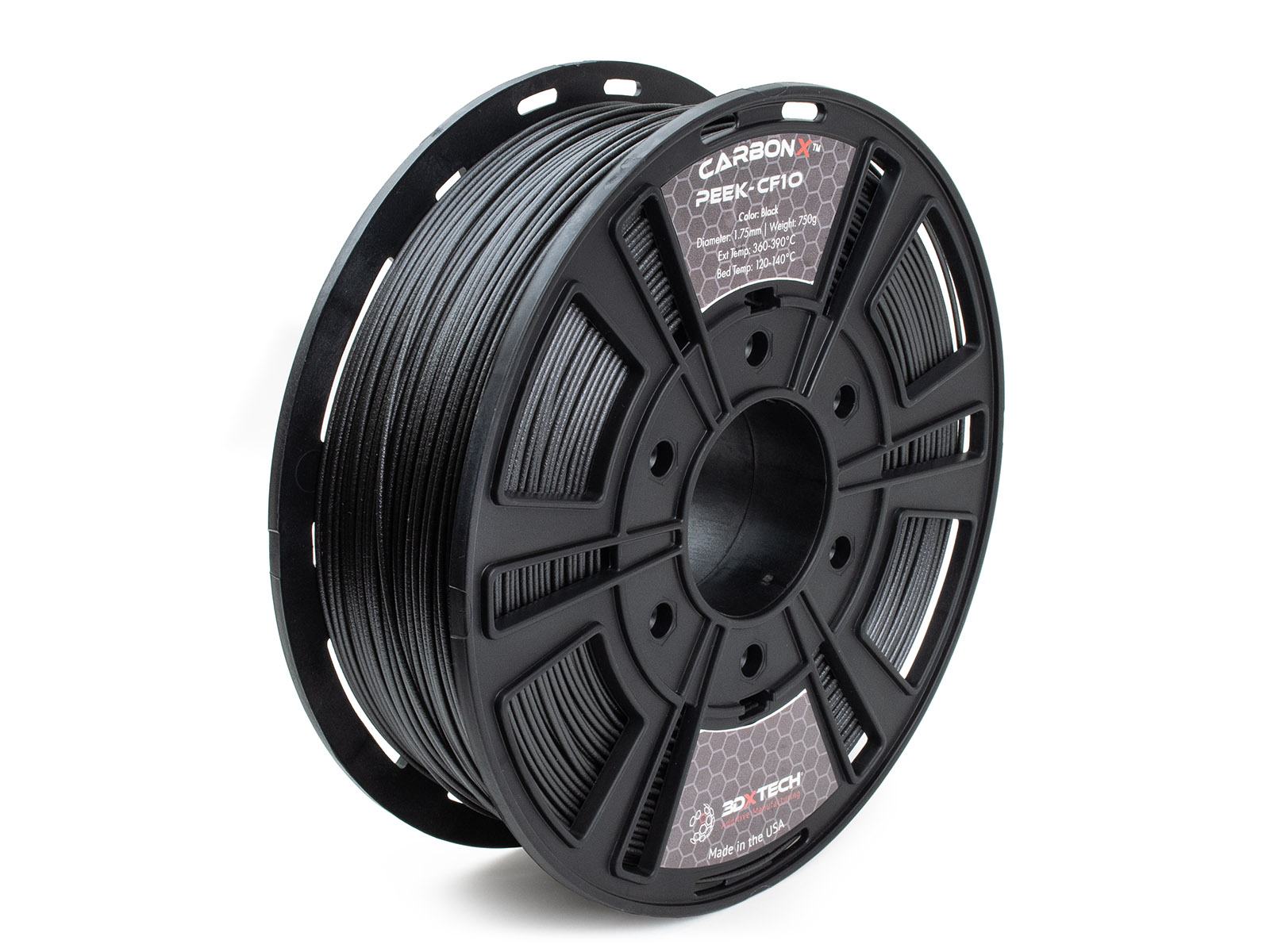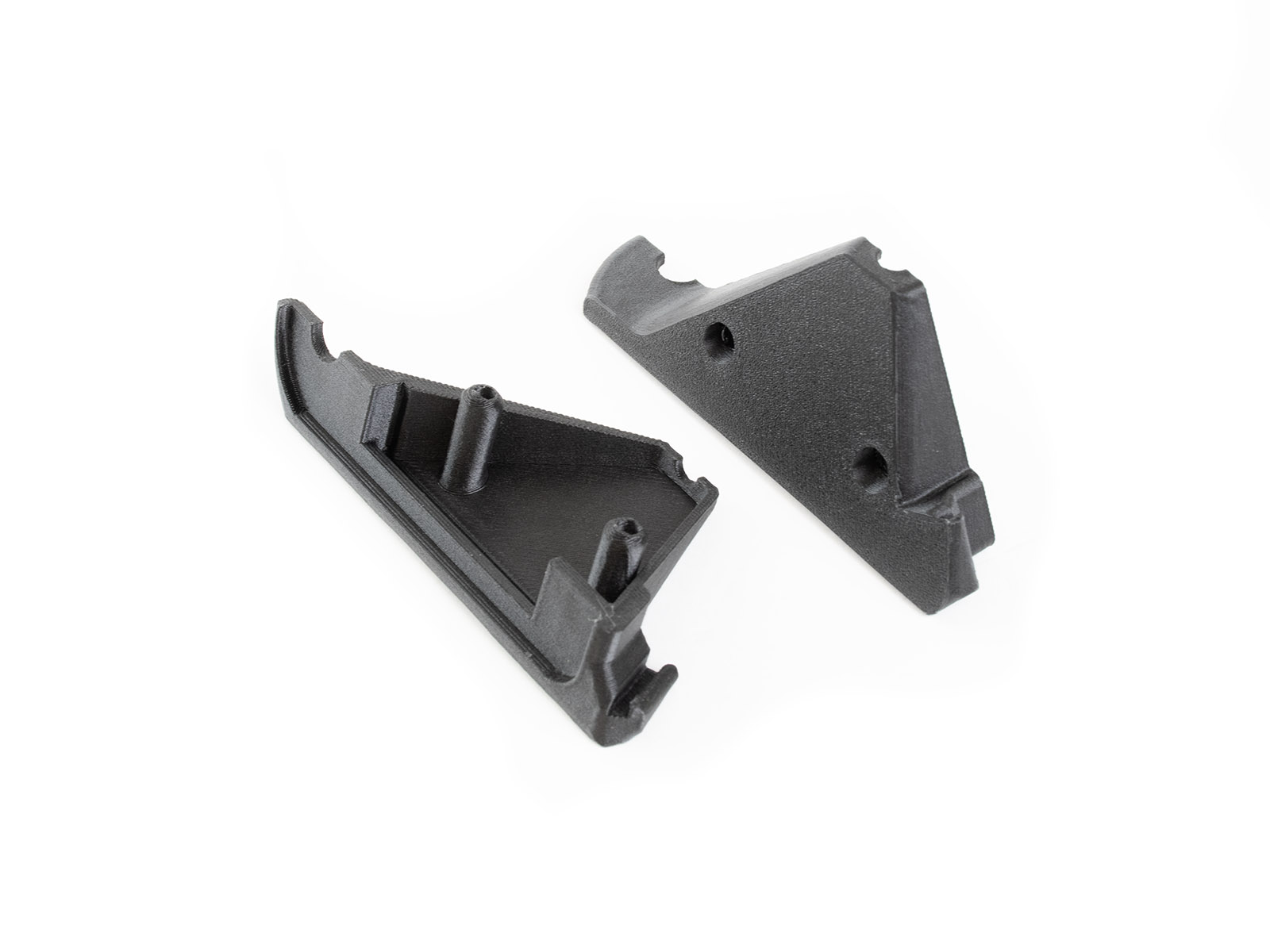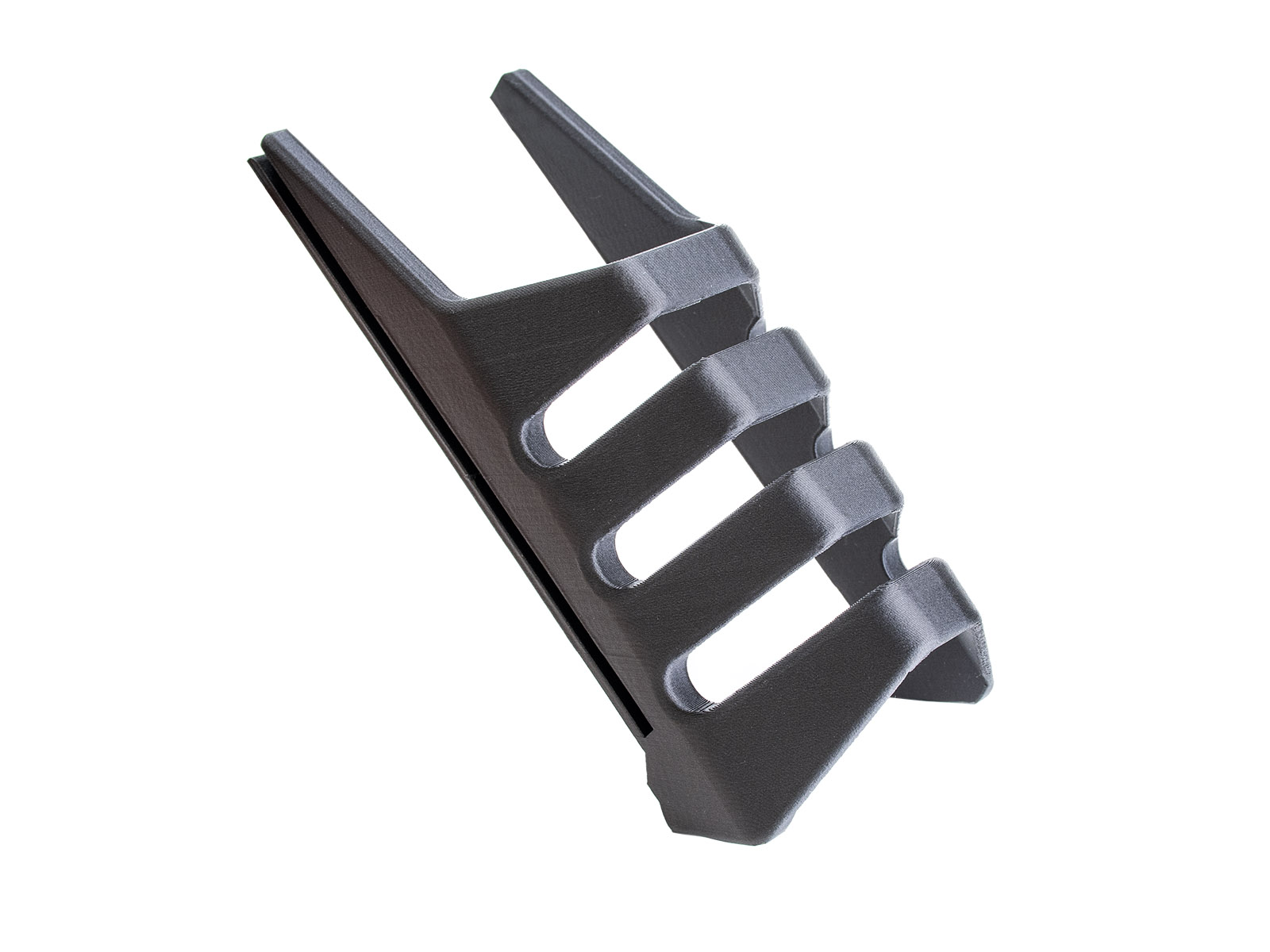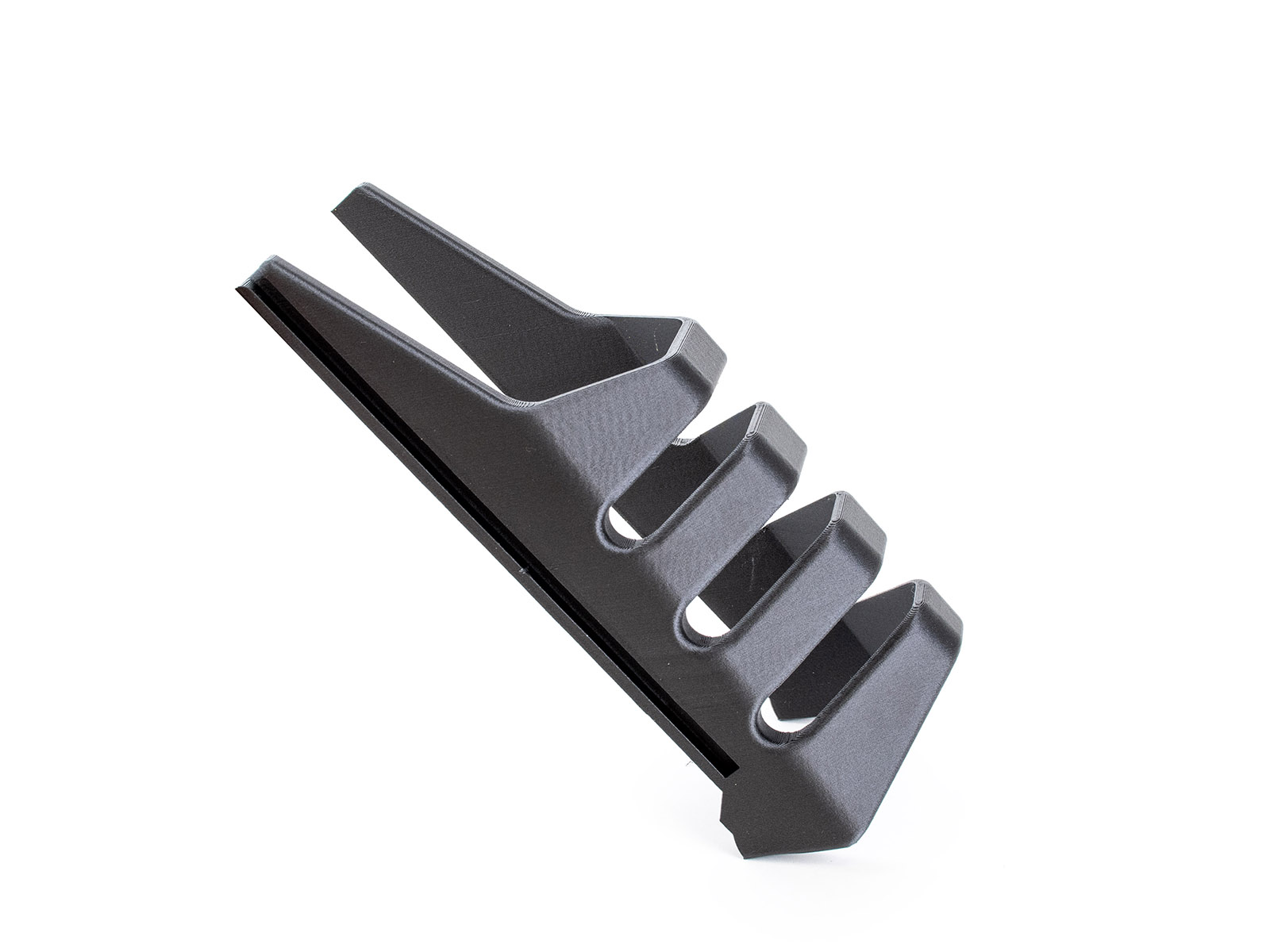- English
- Čeština
- Español
- Italiano
- Deutsch
- Polski
- Français
- Home
- このプリンターを使用
- 材料ガイド
- PEEK-CF (Polyetheretherketone)
PEEK-CF (Polyetheretherketone)
- 3Dモデル
- 材料ガイド
- ABS
- ASA
- 複合材料(カーボン、ケブラー、ガラスを充填したもの)
- 複合材料(金属や木の粒子が入っているもの)
- CPE
- フィラメントの除湿
- 柔軟な材料
- HIPS
- How to print with PEI 1010
- Prusament リフィルの使い方
- HueForge filament transparency values and HexCodes
- LW PLA
- NGEN
- PEEK-CF (Polyetheretherketone)
- Best use
- Tips for successful printing
- Heated chamber
- Print surface preparation
- Samples
- PEI (Ultem)
- PEKK-CF (Polyetherketoneketone)
- PETG
- PLA
- ポリアミド(ナイロン)
- ポリカーボネート(PC)
- ポリプロピレン(PP)
- PPS (Polyphenylene sulfide)
- PPSU (Polyphenylsulfone)
- Prusament Resin Model Color Kit
- PSU (Polysulfone)
- PVB
- Resin yellowing and how to reduce it
- Resins
- Tested resins
- 水溶性フィラメント (BVOH/PVA)
- スライス処理
- プリンターメンテナンス
- Prusa Connect [進行中の翻訳]
PEEK-CF is an advanced thermoplastic filament with excellent mechanical properties and high-temperature resistance. This material is based on polyetheretherketone (PEEK) with added carbon fibers, improving its strength, toughness, and thermal resistance. PEEK-CF filament is known for its high resistance to temperature, chemicals, and wear, making it an ideal choice for applications requiring extreme operating conditions. Due to its ability to print complex geometries with high precision, PEEK-CF filament is suitable for industrial and engineering applications, including aerospace components, automotive parts, medical implants, and prototyping.
Recommended nozzle temperature: 380 - 440°C
Recommended bed temperature: 140 - 155°C
|
Advantages |
Disadvantages |
|---|---|
|
✔ Extraordinary temperature resistance |
✖ High cost of filament |
|
✔ Excellent chemical and mechanical resistance |
✖ Requires adhesives to increase adhesion to the print |
|
✔ High precision and dimensional stability |
✖ Removing supports can be difficult |
|
✔ Low weight due to the presence of carbon fibers |
✖ Requires drying |
| ✔ Self-extinguishing material |
|
| ✔ Excellent insulating properties |
|
Best use
Lightweight and strong components in aerospace, engine parts and coolers in automotive, medical implants and tools, functional parts of machinery, valves, and pipes.
Tips for successful printing
It is essential to keep the filament dry, otherwise, its mechanical properties will significantly deteriorate. PEEK-CF is extremely hygroscopic and begins to absorb moisture from the air within 10 minutes, affecting the resulting quality and strength. Therefore, we recommend drying the filament for at least 4 hours at 130°C before printing and using a dry box (like the Prusa Pro Filament Drybox).
Heated chamber
An actively heated chamber is necessary to print this material with a temperature of 85°C or higher. A heated chamber is essential for printing high-temperature materials in FFF, due to several reasons:
- Prevents deformation: Maintains stable temperatures to reduce deformation and cracking.
- Improves layer adhesion: Supports stronger connections between layers.
- Preserves the properties of the material: Ensures proper crystallization and strength of the material.
- Prevents clogging: Prevents premature cooling of fibers and prevents problems with extrusion.
- Improves accuracy: Reduces thermal expansion and improves dimensional accuracy.
Print surface preparation
For printing, a special adhesive must be applied to the print bed (e.g., MAGIGOO HT) for the perfect first layer. We recommend using the adhesive in multiple layers.
Samples
 |  |
 |  |
Comments
Still have questions?
If you have a question about something that isn't covered here, check out our additional resources.
And if that doesn't do the trick, you can send an inquiry to [email protected] or through the button below.